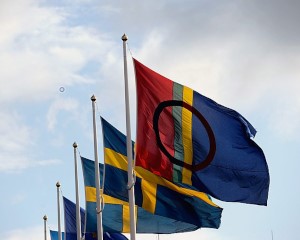This working paper studies the public media discourse that has evolved around the creation of the Sámi Truth Commission in Sweden. Since the 1990s, truth commissions have been installed in post-conflict or post-authoritarian settings to further transitional justice, though the range of situations in which they are established has multiplied over the past two decades. Most recently, settler colonial states have tasked commissions to unravel historical colonial violence and its lasting effects in the present. Canada was the first to do so in 2008 and has since been used as a model for other countries. As this move is comparatively new, there is no exhaustive research on the processes these developments may trigger or new possibilities they may open up. This prompted the interest of the authors in the arguments for or against the creation of such a commission in a given public context. The focus is on Sweden, because it was the last Nordic state to take this step. In November 2021, likely taking the experiences from its neighbouring countries into consideration, the Swedish government decided to install a truth commission. The aim was to identify dominant agents that influence the public discourse on the Sámi Truth Commission in Sweden, as well as to understand their demands and arguments.
Dr Sabine Mannitz is a board member and head of the research department “Glocal Junctions” at PRIF and Principal Investigator in the Regional Research Centre Transformations of Political Violence/TraCe. One of her research fields is the present-day implications of historical violence.
Merle Ecker completed a three-months-internship at the Peace Research Institute Frankfurt under supervision of Sabine Mannitz in 2023. She took courses in International Human Rights and Gender Studies at Stockholm University and is currently doing her Master’s degree in Peace and Conflict Studies (International Joint Award) at University of Kent and Philipps-Universität Marburg.
